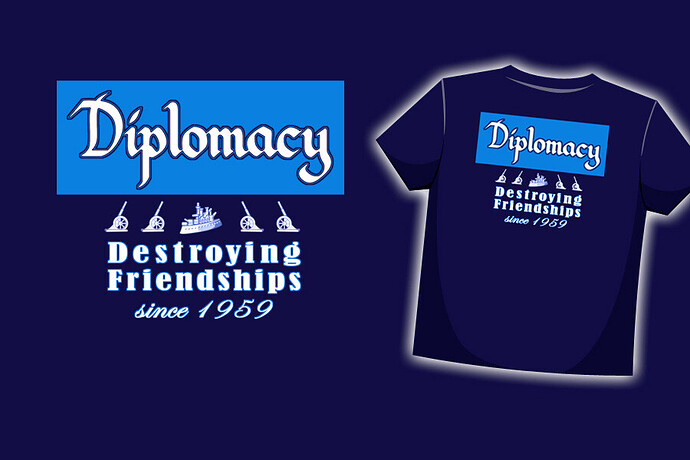I am not a huge board game player, but I do enjoy the occasional classic war game like Risk, Axis and Allies (when the stars align and I happen to have both the time for it, and enough gathered interest from some of my kids).
I recently discovered the board game Diplomacy, from the 1950’s, and I’m wondering where this game has been all my life. It’s like everything I imagined Risk could have been, filled with informal, secretive alliances, deceit, and betrayal, all done in such a way that makes it a compelling and central part of the game – in contrast to Risk, where informal alliances tend to just make people mad and ragequit. ![]()
In fact, the more I’ve thought about it, Diplomacy seems to do the whole deceit and betrayal thing so well that it makes me question the moral implications of such games in a way I haven’t considered for awhile.
So I thought I’d throw the question out there. What do ya’ll think about the moral implications of games that are built upon deception and betrayal?
In general, I think it’s a fair observation that all games involving competition will involve some layer of deception, big or small. In football, plays often involve misdirection. In any war game – even ones where everything is exposed in plain sight, like Chess – there is some level of “I know something my opponent doesn’t know and I don’t want my opponent to figure it out so I can exploit it.” Deception is inherent to war (e.g. Joshua 8:6-7), so it seems natural that it’s fitting to any war game, and I don’t think there typically needs to be a moral conundrum.
But is there a threshold? Does there come a place where a game involves deception to such an extent that we’re no longer just hiding information, but we’re being invited to bear false witness – where even though it’s in the context of a game, our consciences ought be bothered?
It seems reasonable to me to make the distinction that in a game like this, the deceit itself isn’t really deceitful since all parties are basically consenting ahead of time to the deception as part of the experience.
Thoughts?
